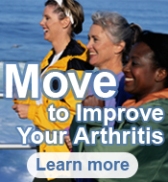Spotlight
Physical Environment and Chronic Conditions Restrict Community Participation in Older Adults
 Older adults, for whom community participation may be especially important, are often at risk for unwanted declines in participation. A new CDC study examined the prevalence of community participation restriction due to perceived environmental barriers among older adults ages 50 years or older and compared the impact among those with selected chronic conditions.1
Older adults, for whom community participation may be especially important, are often at risk for unwanted declines in participation. A new CDC study examined the prevalence of community participation restriction due to perceived environmental barriers among older adults ages 50 years or older and compared the impact among those with selected chronic conditions.1
Among all adults ages 50 years or older, the prevalence of community participation restriction was 3.6%. Among adults with chronic conditions, however, the overall prevalence of community participation restriction was higher, ranging from 5% for obesity to 20% for serious psychological distress. The most commonly cited barriers were accessibility (i.e., building design, lighting, and sound) and mobility (i.e., crowds, sidewalks and/or curbs, and transportation).
The highest prevalence of community participation restriction was among respondents with serious psychological distress (20%), followed by neurological conditions, hearing or vision impairments, and depression and/or anxiety. In absolute numbers, however, the greatest community participation restriction was among older adults with arthritis (1.9 million).
Promising targets to reduce community participation restriction among adults ages 50 or older with chronic conditions, particularly arthritis, include building design, modified sidewalks and/or curbs, crowd control, and other interventions that improve the built environment. Furthermore, changes improving the built environment for older adults can also benefit community members of all ages.
Reference
1. Theis KA and Furner SE. Shut-In? Impact of chronic conditions on community participation restriction among older adults. Journal of Aging Research 2011;issue(volume):page numbersof final publication. abstract html
Get email updates
To receive email updates about this page, enter your email address:

Contact Us:
- Arthritis Program
Mailstop K-51
4770 Buford Hwy NE
Atlanta, GA 30341-3724
- Phone: 770.488.5464
Fax: 770.488.5964 - cdcinfo@cdc.gov


